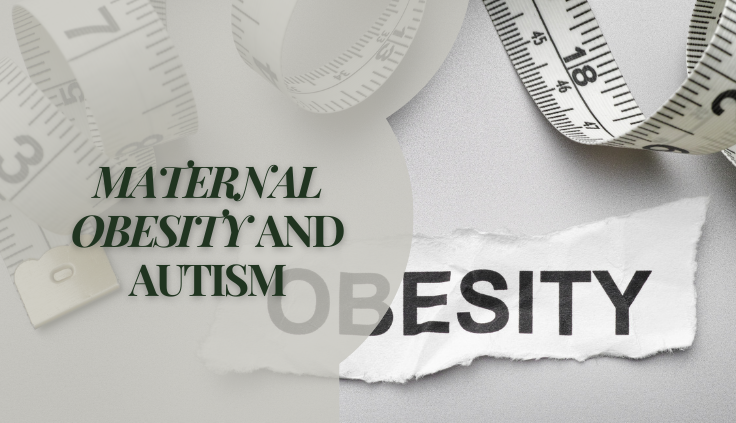Maternal Obesity and Autism
A big obstacle that medical and mental health professionals face when trying to diagnose autism spectrum disorder (ASD) is the fact that there is no single blood test or medical exam that can identify it. Instead, diagnoses are made based on the prevalence of behaviors that children exhibit and based upon comparisons of different stages of their development.
Luckily, research has helped develop many different tools that are used for early identification of some of the most common signs and symptoms of autism and other neurodevelopmental disorders.
At the same time, there is still a lot that is unknown about the exact causes of autism. Research has shown that there are various potential factors, including genetics and environment.
Some research also shows that maternal health can play a big role in the risk that a child will have in developing autism. One such potential risk factor is maternal obesity.
Below, we’ll analyze this in more depth.
Learn more about maternal health and autism risks
Table Of Contents
What is the Link Between Maternal Obesity and Autism?
In recent years, multiple studies have been conducted into a possible link between maternal obesity and autism. The results of these studies are mixed, but many do suggest that maternal obesity increases the risk of a child developing autism.
One study, published in 2014 in the journal Pediatrics cited a study from California that reported that mothers who were obese before their pregnancy had a 67% increase in the risk of their children having ASD.
A 2016 study published in the same journal found that maternal prepregnancy obesity and pregestational diabetes, or PGDM, each were associated with an increased risk of ASD for their children.
More recent studies have shown the risk factor to be lower percentage-wise, with some saying that children who are born to mothers who are obese have a 30% greater risk of having autism compared to other children born to mothers who are at a healthy weight.
While the results of these studies have obviously varied, it does appear clear that there is at least some link between maternal obesity and autism risk.

What Role Does Maternal Obesity Have on Autism Risk?
One of the big questions that has arisen out of these studies is what role maternal obesity has on autism risk. In other words, what is it about maternal obesity that increases the risk of children developing ASD?
In this realm, there isn’t a single definitive answer as of yet. There are some theories about why this may be the case, though.
Maternal obesity is known to cause oxidative stress and inflammation throughout the body. Some researchers believe that these could have an effect on the development of the fetal brain, which in turn could contribute to an increased risk of having neurodevelopmental disorders such as autism.
Another theory that has been proposed is the effect that maternal obesity has on metabolic processes and hormonal balance, which it has been proven to disrupt. If metabolic processes and hormones are out of whack, the researchers propose, then the development of the fetal brain could also be impacted.
These, of course, are only theories, and more studies are being done so that everyone can gain a better understanding about the possible effects that maternal obesity has on the risk factor of children developing autism.
What are Some of the Other Risk Factors for Autism?
In addition to maternal obesity, there are some other risk factors that have been identified by various research.
One is genetics. It’s possible that autism could be passed down from one generation to the next. Some studies have found that children born to parents who have autism, for instance, are more likely to have autism themselves.
Other risk factors are more environmental in nature. This includes mothers who smoke or drink alcohol during pregnancy, and children who are born to parents of advanced parental age.
Some research has indicated that exposure to environmental toxins such as pollution and certain pesticides in utero and in the early stages of life could also play a factor in increasing the risk of a child developing ASD.
Blue Gems ABA Treats Children with Autism
It’s important to note once again that much more research is needed to draw a distinct line between any single factor and the possible link between an increased risk of developing autism. That being said, there has been enough research to suggest that maternal obesity can, in fact, increase the risk of a child developing ASD.
At Blue Gems ABA, we have a team of experienced BCBAs who help support children with autism by administering applied behavioral analysis, or ABA therapy, on a one-to-one basis. ABA therapy is considered the gold standard of treatment for children on the autism spectrum, helping them gain the social, communication and daily life skills with which they typically struggle.
To learn more, please contact us today.




